|
FOCUS / FORUM
INDEX
|
 |
In 2008, the Forum Comment,
was relaunched as the Focus
reflecting the closer comment from
NEMP and the panel of educators. |
 |
|
Main Index for Focus / Forum
Introduction
to Focus / Forum
He
Whakaputanga Whakaaro –
Introduction for Mäori
Medium forums
|
| Forums by year of assessment |
|
|
|
Science
Art
Graphs, Tables & Maps
|
|
|
|
Music
Aspects of Technology
Reading & Speaking |
|
|
|
Information
Skills
Social Studies
Mathematics |
|
 |
|
Listening
& Viewing
Health & Phys. Ed.
Writing |
|
| Forums for Mäori Medium |
|
|
|
Science
Art
Graphs, Tables & Maps
|
|
|
|
Music
Aspects of Technology
Reading & Speaking |
|
|
|
Information
Skills
Social Studies
Mathematics |
|
 |
|
Listening
& Viewing
Health & Phys. Ed.
Writing |
|
|
|
|
|
 |
|
 |
|
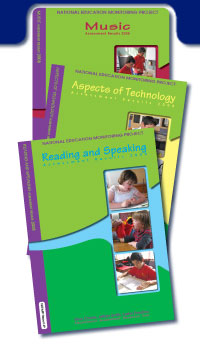
CLICK
on reports above to go directly
to comments |
|
2009
FORUM
PARTICIPANTS
Jan Adams
Susan Apathy
Roger Buckton
Tricia Carroll
Kay Collins
Merryn Dunmill
Paddy Ford
Wendy Fox-Turnbull
Ray Griffiths
Joanne Hardwidge
Sharyn Heaton
Selena Hinchco
Deborah Lean
Diane Leggett
Libby Limbrick
Linda Locke
Lester Mohi
Frances Neill
Faye Parkhill
Liz Patara
Tracy Rohan
Ross Scrymgeour
Rae Si’ilata
Robyn Trinick
Ross Tyson |
 Click
the Access Task icon for more information
about the tasks which will be available
to schools from November 2009.
Click
the Access Task icon for more information
about the tasks which will be available
to schools from November 2009. |
|
What did we find in
this year’s
NEMP results?
|
| Reading & Speaking |
 |
Music |
 |
Aspects of Technology |
| “Most students were able to decode demanding texts quite accurately, with substantial improvement over the last eight years, but there has been no improvement in comprehension...” |
“Year 4 students whose home language is not English, Pasifika students and Pakeha students performed similarly. Pasifika students did particularly well on many performance tasks... ” |
“Year 8 children presented some very innovative solutions
to problems that require them to develop a device or a solution to a practical problem….” |
This year’s Focus (previously Forum Comment) reports on what we learned and what panels of leading New Zealand educators think the implications are.
The three reports on the 2008 assessment results were considered by a national forum of teachers, subject specialists, representatives of national organisations and government agencies. The forum has translated the findings into specific recommendations for educators working with primary school children.
|
|
|
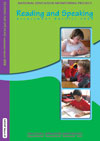 CLICK for full report CLICK for full report
|
GOOD
NEWS
• Out of 14 subjects, reading is the fourth most popular for year 4 students and the sixth most popular for year 8 students. Eighty-five percent of year 4 students and 79% of year 8 students were positive about reading at school.
• More than 75% of year 4 and year 8 students were positive about reading, their own competence in reading, their parents’ views about their competence in reading, looking at books in a bookshop, going to a library, having their teacher read a story out loud, and talking to a group in their class. |
|
| |
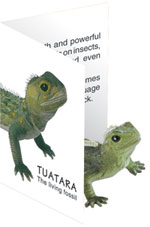 • Between 2000 and 2008, there has been a moderate improvement in oral reading (decoding) performance, for both year 4 and year 8 students. Using instructional reading criteria (5 to 10% errors allowed), more than 75% of students at both year levels can satisfactorily decode fiction and non-fiction texts that have been judged appropriate at more advanced reading levels. • Between 2000 and 2008, there has been a moderate improvement in oral reading (decoding) performance, for both year 4 and year 8 students. Using instructional reading criteria (5 to 10% errors allowed), more than 75% of students at both year levels can satisfactorily decode fiction and non-fiction texts that have been judged appropriate at more advanced reading levels.
|
|
• For both year 4 and year 8 students, the percentage of students saying that they “didn’t know” how good their teacher thought they were at reading has more than halved (from 37% to 17% at year 4 and 54% to 25% at year 8).
• Between 2000 and 2008, year 4 boys have gained ground on girls in overall reading achievement. Girls now have a small advantage, rather than a moderate advantage.
• Between 2000 and 2004, disparities in achievement between year 4 Pakeha students and their Mäori and Pasifika counterparts decreased by about one third. These reductions have been maintained in 2008. |
|
 |
CONCERNS
• Despite the improvement noted above in oral reading (decoding) between 2000 and 2008, over the same period there has been no improvement in reading comprehension (and some limited evidence of small performance declines), for both year 4 and year 8 students.
• Reading was a high preference leisure activity for only about 20% of the students (down from 34% for year 4 students and 30% for year 8 students in 2000). About 80% of year 4 students were positive about reading in their own time (down from 85% in 1996), but this dropped to 59% of year 8 students (down from 77% in 1996). If the quantity of reading in leisure time is declining, students will have more limited experience to strengthen their reading skills, vocabulary and possibility of finding reading a motivating pastime.
• In 2008, fiction books and comics were equally popular reading for year 4 students, closely followed by magazines. For year 8 students, magazines were most popular, followed by fiction books and comics, then non-fiction books. In 1996, fiction books were clearly most popular for students in both year levels.
• Although students are positive about having their teacher read a story aloud, getting a book for a present, looking at books in a bookstore, or going to a library, the numbers of children who are very positive about these activities has declined from 1996 to 2008, particularly at year 8, where the decline is substantial in some instances.
• Scanning for needed or relevant information remains a substantial weakness for both year 4 and year 8 students.
• For both year 4 and year 8 students, there are still large disparities in performance between students attending low, medium and high decile schools.
• On average, year 8
Pasifika students are scoring much lower in reading than year 8 Pakeha students.
|
LOOKING
AHEAD
• Helping students to enjoy reading and to spend time reading in their own time remains an important task for teachers. Helping students to find books that match their interests and are suitable to their capabilities is a valuable strategy, as is choosing stimulating and varied books to read to the class. Engaging in reading and experiencing a rich range of reading material pays large dividends in vocabulary development, consolidation of decoding skills, and improvement in reading comprehension.
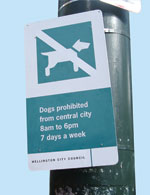 • Students need guidance and encouragement to help them to focus on developing good comprehension skills. While they are often good at extracting individual factual details from their reading, they need to work on inferring meaning when it is not directly stated (e.g., “Shopping Around”), and in relating or synthesizing different ideas to understand authors’ messages (e.g., “Tuatara and Weta” and “Tusk the Cat”). • Students need guidance and encouragement to help them to focus on developing good comprehension skills. While they are often good at extracting individual factual details from their reading, they need to work on inferring meaning when it is not directly stated (e.g., “Shopping Around”), and in relating or synthesizing different ideas to understand authors’ messages (e.g., “Tuatara and Weta” and “Tusk the Cat”).
• Comprehension skills are most likely to develop rapidly if given attention across the curriculum, rather than primarily in language teaching and learning.
• Skills in scanning for information (as required in “When Disaster Strikes”) are becoming increasingly important, with the huge volume of information of widely varying quality that students are accessing through the Internet. As reported above, this is a clear area of weakness for both year 4 and year 8 students, and students need regular practice and guidance to develop these skills.
|
| |
|
|
|
 CLICK for full report CLICK for full report
|
GOOD
NEWS
• Year 8 students performed better than year 4 students on almost all speaking task components. Differences were small on task components related to enthusiastic involvement and expressiveness, but year 8 students generally performed substantially better at presenting information in precise, logically-ordered ways, and at coordinating the work of three or four team members. |
|
|
• While performance at both year levels was very similar in 2004 and 2008, there has been a small improvement in oral presentations by year 4 students over the twelve years from 1996 to 2008.
• Boys performed almost as well as girls on most speaking tasks.
|
|
• While year 4 Pakeha students still perform substantially better than year 4 Mäori and Pasifika students, these differences have decreased between 2000 and 2008.
• Most students scored highly for speech clarity (communicating individual words) where this was assessed, so it was not an important factor in the varied performance of students.
|
|
 |
CONCERNS
• At both year levels, students in high decile schools performed substantially better on most speaking tasks than students in low decile schools. There has been no improvement in this regard between 1996 and 2008, with a moderate increase in disparities for year 8 students.

• Substantial disparities for year 8 Mäori and Pasifika students have not changed over the 12 year period.
• While many students included the more important details in their oral descriptions, Mäori and Pasifika students tended to omit additional details that enrich and complete the descriptions.
|
LOOKING
AHEAD
• Handbooks on oral language teaching and learning recently published by the Ministry of Education offer very good guidance on how to promote students’ oral language. They would form a good starting point for professional development in this area.
• While most teachers demonstrate good speaking practice in their work with classes and individual students, it would be advantageous if they took time to draw attention to speaking skills and provide feedback to students about their progress in this area.
• The tasks that NEMP has used to assess speaking skills are often good models that teachers can choose or adapt to provide their students with specific practice in a variety of speaking situations and skills. (For examples of impromptu, see “Favourite Game”; “Movie/Play”; for rehearsed, see “Story Puppets”; for scripted, see “Kea Magic” and “Conversations”). |
|
|
 |
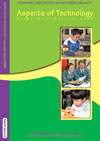 CLICK for full report CLICK for full report
|
GOOD
NEWS
• Year 4 and year 8 students show a basic ability to read and interpret graphs, tables and maps, with year 8 students showing marked improvement over ear 4 students. There was substantial progress between year 4 and year 8 both in the ability to interpret graphs, tables and maps, and in the ability to construct them. The margin was twice as large for the more sophisticated task of constructing graphs, tables and maps, where the additional teaching received by the year 8 students appeared to help considerably.
|
|
• While performance at both year levels was very similar in 2004 and 2008, there has been a small improvement in oral presentations by year 4 students over the twelve years from 1996 to 2008.
• Boys performed almost as well as girls on most speaking tasks. |
|
• While year 4 Pakeha students still perform substantially better than year 4 Mäori and Pasifika students, these differences have decreased between 2000 and 2008.
• Most students scored highly for speech clarity (communicating individual words) where this was assessed, so it was not an important factor in the varied performance of students. |
|
|
 |
CONCERNS
• Overall performance is not as high as the enthusiasm toward technology, particularly at
the year 4 level.
• There are moderate differences in performance between Pakeha and Mäori students, and between Pakeha and Pasifika students. These differences are larger at year 8 than they are at year 4.
• The decile rating of the school, remains a strong factor in terms of relationship to performance.
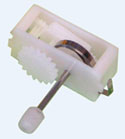
• Year 4 students seem to have particular difficulty in going beyond the “basics” with regard to technology. They have trouble explaining why things are designed the way they are, considering the social aspects of technology, or designing objects on their own. |
LOOKING
AHEAD
• At year 4, teachers should provide opportunities for students to consider the wider social/cultural implications (“nature of technology” strand) of technology (such as in “Changes over Time” and “Fishing”).
• Teachers need to model and encourage student use of terms and explanations in technology, such as “magnetism”, “specifications”, and “stakeholders”.
• Children need to examine and critique a range of existing technologies, such as those found in “A Bit of Lemon”. This can include the identification of parts (components), their relationship to the whole and how they function together (e.g., “The Crafty Knife”; “Eel Trap”).
• Almost all of the tasks presented in the report are trend tasks, initially presented to children in 2004. They could be successfully implemented within the revised New Zealand Curriculum. |
|
|
 |
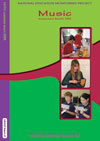 CLICK for full report CLICK for full report
|
GOOD
NEWS
• About 30% of year 4 and year 8 students said that they learned music or belonged to a music group outside of school. Among the year 4 students, substantially higher percentages of some subgroups reported such involvement: 54% of students for whom the predominant language at home was not English, 50% of the Pasifika students, and 43% of students in low decile (1-3) schools. The involvement of Pasifika students in culture-based music activities is one possible explanation. These large subgroup differences were not apparent among year 8 students.
|
|
• Out of 14 subjects, music is the fifth most popular for both year 4 and year 8 students. At least 84% of students in both years were positive about doing music at school and also about learning or doing more music as they got older.
• Perhaps reflecting these extra-curricular experiences, year 4 Pasifika students and year 4 students whose home language was not English performed as well overall on music tasks as year 4 Pakeha students. The year 4 Pasifika students excelled on Find the Beat, (p28) far outperforming Pakeha and Mäori students, and also did well on many performance tasks. Pakeha students tended to do better on tasks requiring understanding of music notation or of different musical instruments and styles.
|
|
• Other subgroup differences in musical performance were small: between students attending low, medium and high decile schools; between year 4 Pakeha and Mäori students; and between year 8 Pakeha, Mäori and Pasifika students.
• Despite the pressures from other curriculum areas, students’ performance in music has been maintained between 1996 and 2008, with a small improvement for year 4 students in creating, playing and singing music.
• Between 1996 and 2008, school music programmes appear to have given greater attention to listening to music. |
|
|
 |
CONCERNS
• Performance in singing was generally weak, with little evidence of progress between year 4 and year 8. Students were generally much more successful at maintaining rhythmic patterns than at singing in tune.
• High percentages of students reported few opportunities in school music programmes to play instruments or to make up (compose) music. The latter was a particular weakness in the programmes for year 8 students.
• While most students particularly enjoyed listening to music, few students at either year level showed strong ability to discuss music using musical language. |
LOOKING
AHEAD
• With about 30% of students involved in music lessons or music groups outside of school (and substantially larger percentages for some categories of students) teachers should seek to capitalise on this involvement and use it as a good starting point for school music activity.
• Schools should seek to involve community musicians and local cultural leaders in school musical programmes. Approaching musicians that some of the students are working with outside of school would be a good starting point.
• Where schools have teachers with real strengths in music, ways to share those strengths across classes should be found. |
|
|
 |
ISSN 1174-247X
|
|
|
|